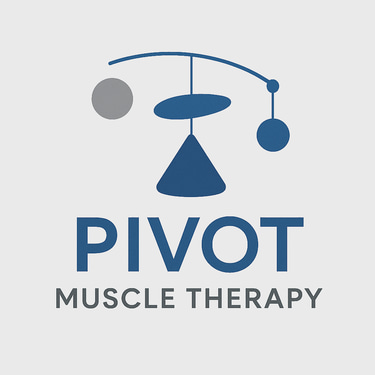FAQ
Massage Therapy
What to Expect??
#1) What will happen at my first massage?
You will work through a Health History and Informed Consent form which details your goals for treatment as well as your experience with massage therapy and your medical history as it pertains to massage. This helps us have appropriate conversations to protect you throughout your treatment and have clear communication about approaches and expectations. After intake paperwork, we will start assessing posture and joint mechanics looking for dysfunctional soft tissue which we call opportunity for improvement. This is a great place for us to get to know each other and for you to express any questions or concerns.
Armed with some information, we will communicate our strategy to address your stated goal and give you some privacy to settle in to the therapy table. We will then follow through with the therapeutic interventions that we discussed and work to move you towards your wellness goals.
#2) Should I see a therapist if I'm not in pain?
We can acknowledge that Massage Therapy is a great natural solution for pain relief, but also realize that it is an excellent wellness and preventative treatment too. Regular massage appointments help an individual:
Naturally regulate stress hormones boosting performance and immunity
Loosen tight muscles potentially preventing injury from activities that you enjoy
Develop a rapport and a baseline of wellness on record so that recovery is quicker when you do have a setback.
Create time and space for you to decompress and recover from a hectic schedule in a neutral space.
There are many ways which massage can support your wellness, and exploring therapy without specific injury can help you find new ways to support you health which you may not have otherwise been able to enjoy. This might include improving circulation, alleviating breathing problems, lowering your blood pressure, reducing incidence of headaches, improving your mobility, and helping you manage anxiety and depression. Massage has also been shown to promote deep and healthy sleep.
#3 ) Do I have to remove my clothes?
In short, No. We have modalities to address your painful muscle tissue which accommodate fully clothed clients. Some of the more conventional soft tissue techniques will be best applied directly to the skin and fascia--but it is always your choice to control the level of participation.
You will have privacy in the room during any transitional periods of undress, and appropriate draping will be utilized to protect modesty barriers, as per ethics and state regulation. Just communicate any concerns and we will adapt to your needs.
#4) Is massage painful to receive?
It is common for people presenting with acute injuries to experience some level of discomfort during and directly after receiving therapy. We are working to help you re-regulate injured tissue, and that carries with it some level of distress depending on the duration and severity of your injury. We will always seek to work within the threshold of your tolerance to discomfort. Ultimately our goal is to progress your care, and that can only be accomplished when your nervous system feels safe, acknowledged and able to recover.
#5) I'm self conscious about ______. What should I do?
We all have areas of our bodies that we're concerned about. That looks/feels different for each individual. Some common concerns are:
Unwanted Body Hair
Scars
Our Weight
Skin Blemishes
Please don't let this stop you from getting help from a massage therapist. If you're sensitive about a particular area, we can respect boundaries that we establish together. You can also opt for a fully clothed session if that seems more comfortable. Whatever your concerns, know that your therapists are friendly, supportive and judgment-free.
#6) What if I fall asleep, drool and snore?
Perfect! Though this is not the goal of therapy, it is very common for a person who has experienced unrelenting pain, stress, and postural dysfunction to momentarily go to a very quiet place once the body has found relief. It is often very clear that this time is crucial for the client's recovery, and we will continue working in a manner to keep progress towards your stated goal while allowing you the opportunity to reset. Think of it like rebooting your computer. 5-10 minutes of deep undisturbed peace can be as powerful as a whole nights sleep for some.
#7) What if I need more or less therapeutic pressure from the therapist?
The therapeutic range of tissue depth which allows for pain relief and recovery is highly dynamic. This is always a conversation, and we will work to find a happy medium for you. Any stimulation which is beyond your ability to endure is by nature not therapeutic, likewise if you don't feel like your issues are being addressed, you will not be able to relax into the work. Feel free to speak up! We won't be offended.
#8) Should I talk during my session?
We would like to get to know what works for you and how you are using your body. We will engage you with questions to discern how we can best help you. As we come to know each other, the need for conversation is less. You are always welcome to speak your mind, but never feel the obligation to be conversational. Peaceful quiet is therapeutic, if that feels natural for you.
Always speak up if you are:
Uncomfortable or in pain
Hot or Cold
You have questions about whats going on or forgot to mention something important during the intake portion of the session.
All Major Payments Accepted
Pricing Listed on Booking Page
CONTACT US
If you have further questions about our services, feel free to send an email. We want to be the right fit for you, and look forward to starting that converstion.
ADDRESS
10255 Commerce Dr. Suite 148
Carmel, IN 46032
